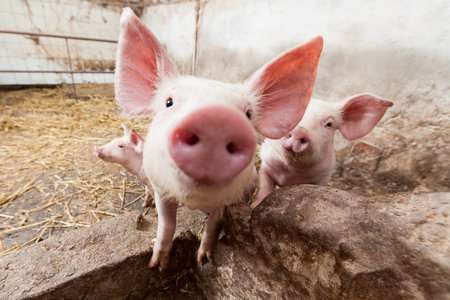Health Canada updates the framework for veterinary-use antimicrobials
By Jennifer Jackson
The Government of Canada is enforcing stricter regulations on the use of antibiotics for livestock. Health Canada released changes to the Food and Drug regulations on May 17 in the Canada Gazette, Part II, according to a release.
Antimicrobial resistance is a growing concern for many Canadians; the number of effective antibiotics are decreasing due to the increase of resistant microbes such as bacteria, viruses and fungi, according to the Gazette.
Due to the resistant pathogen’s ability to transmit via food products, Health Canada is updating antibiotic usage rules in livestock.
The main objectives of the regulation updates include:
- To require that all imported or domestic active pharmaceutical ingredients (APIs) follow Canada’s good management practices
- To require all pharmaceutical companies follow stricter guidelines when testing or importing APIs
- To ban the “own use importation” of some unauthorized drugs
- To require drug importers and manufacturers to submit species-specific sales data for veterinary antimicrobials
- To create and implement an alternative pathway for manufacturers to legally sell and import lower risk “veterinary health products (VHP).” (Many of these VHPs meet the natural health product standard in the Natural Health Products Regulations.)

To assess the risk that these regulations may have to the associated industries, Health Canada reviewed the regulation impacts for producers, veterinarians, pharmacists and manufacturers.
While producers are now unable to import certain veterinary drugs for their own use, Health Canada will consider excluding any of the banned drugs if deemed low risk and not an antimicrobial. Producers will need to purchase drugs domestically.
In terms of VHPs, “improved access for Canadian farmers to a growing number of products that may improve or maintain the health of their animals may diminish the incidence of disease and thereby reduce the need for expensive therapeutic treatments,” the Gazette said. “Furthermore, VHPs that are currently accessed through the EDR will now be freely available without veterinarian intervention.”
In conclusion, the Gazette said, the stricter veterinary drug-use framework and the creation of a VHP supply system will not only increase consumer confidence in animal products, but also protect the effectiveness of human medication.
“Antimicrobial resistance is a serious issue both domestically and internationally. An increasing number of drugs are no longer effectively treating infections because of antimicrobial resistance, which means that human health is at risk,” Jane Philpott, the Minister of Health, said in the release. “Changes to the Food and Drug Regulations introduced today will help protect Canadians from this growing global public health concern.”
Farms.com has reached out to Health Canada for more information on how the regulations will affect producers.
Be sure to check out Better Farming’s feature regarding microbial resistance in its May issue.